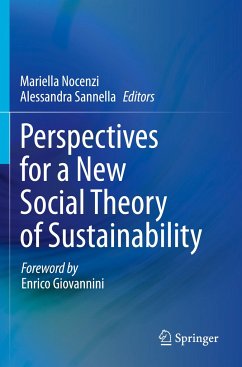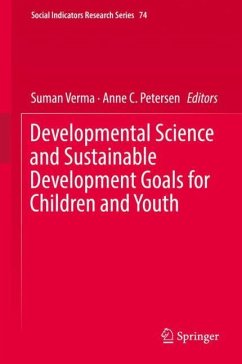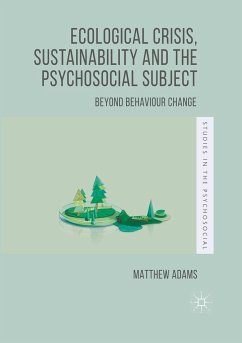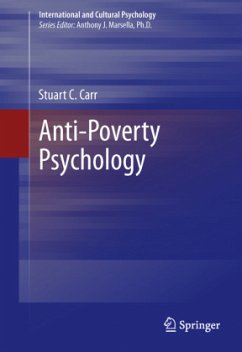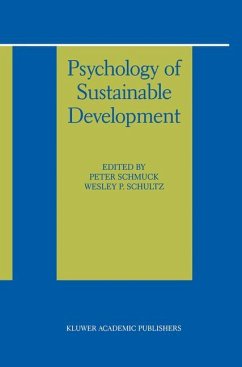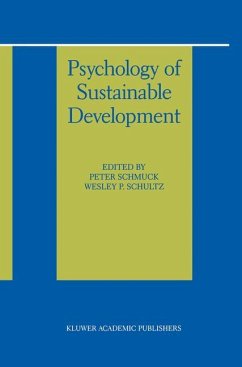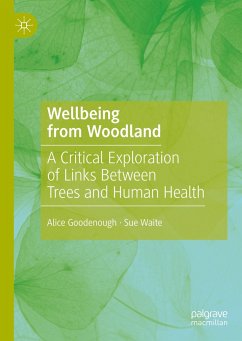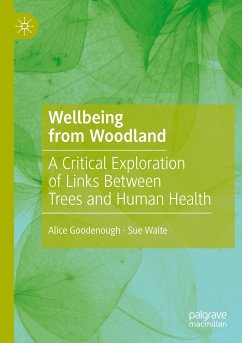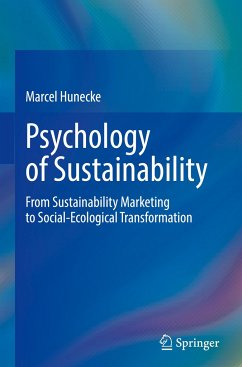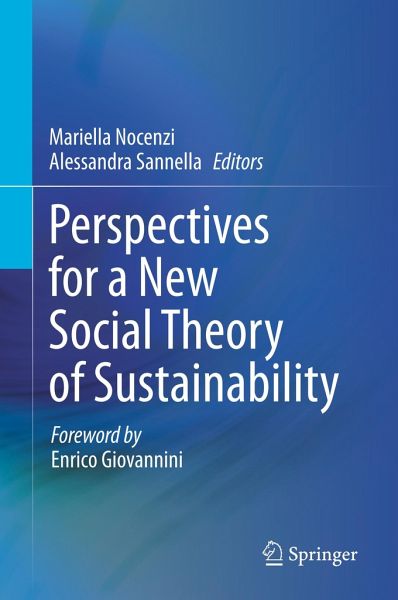
Perspectives for a New Social Theory of Sustainability

PAYBACK Punkte
38 °P sammeln!
This ambitious book outlines the theoretical and practical implications of the recent technological revolution of human/non-human relations for social researchers, and in so doing, seeks to develop more adequate theoretical and methodological models for social scientists to describe and investigate these social transformations and their consequences. The environmental strategies to balance human actions with the earth's resources utilizing a sustainable approach can inspire original conceptualizations and, therefore, a new sociological paradigm rooted in a necessary rethinking of the dualism b...
This ambitious book outlines the theoretical and practical implications of the recent technological revolution of human/non-human relations for social researchers, and in so doing, seeks to develop more adequate theoretical and methodological models for social scientists to describe and investigate these social transformations and their consequences. The environmental strategies to balance human actions with the earth's resources utilizing a sustainable approach can inspire original conceptualizations and, therefore, a new sociological paradigm rooted in a necessary rethinking of the dualism between nature and culture, and of human relations in a hyper-connected society increasingly composed by non-human elements.
Chapter discussions include:
Sustainability and the crisis of the theoretical functional modelEnvironmental sustainability and the evolution of capitalismFrom moral imperatives to indicators and indices: a methodology for validating and assessing SDGsAn understanding of psychopathological syndromes related to social environmentsSocial research between participation and critical detachment
Perspectives for a New Social Theory of Sustainability emphasizes that not only are modernist theories of unlimited wealth and progress no longer supportable, but also that their theoretical and empirical settings must be reassessed if society is to move towards sustainability. It promises to be required reading for students and researchers in sociology, psychology, economics and statistics, as well as professionals within government organizations and NGOs focused on human rights work, global inequities, ethical activism, and the UN Agenda 2030 and its Sustainable Development Goals.
"This book provides a unique toolkit for politicians and citizens on sustainable development and how it is fulfilled every day."
David Maria SASSOLI
European Parliament President
Chapter discussions include:
Sustainability and the crisis of the theoretical functional modelEnvironmental sustainability and the evolution of capitalismFrom moral imperatives to indicators and indices: a methodology for validating and assessing SDGsAn understanding of psychopathological syndromes related to social environmentsSocial research between participation and critical detachment
Perspectives for a New Social Theory of Sustainability emphasizes that not only are modernist theories of unlimited wealth and progress no longer supportable, but also that their theoretical and empirical settings must be reassessed if society is to move towards sustainability. It promises to be required reading for students and researchers in sociology, psychology, economics and statistics, as well as professionals within government organizations and NGOs focused on human rights work, global inequities, ethical activism, and the UN Agenda 2030 and its Sustainable Development Goals.
"This book provides a unique toolkit for politicians and citizens on sustainable development and how it is fulfilled every day."
David Maria SASSOLI
European Parliament President



